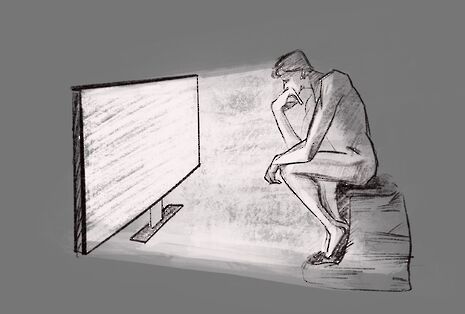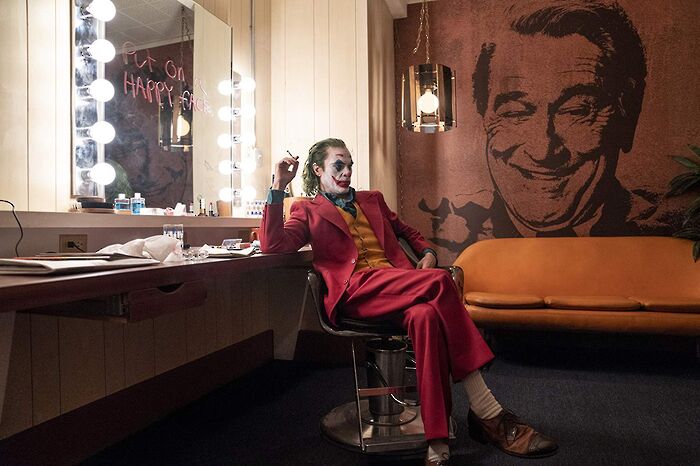How film got me into philosophy
The way we watch film and TV is a fascinating insight into our ethical selves, argues Jay Chiswick

If you’ve ever sat in an ethics class, you’ve probably heard of the ‘trolley problem,’ among other ethical scenarios that will probably (and hopefully!) never happen in real life. Sometimes these scenarios can be frustrating, because they’re often deliberately far removed from reality and so perpetuate the stereotype that philosophy is all about useless abstractions and posing like ‘The Thinker’ in an armchair.
But in the fictional realm of film, you are regularly immersed in these sorts of far-fetched events. This prompts discussion of philosophy and ethics, both intentionally and by chance.
“Film immerses you in ethical events that rarely happen in real life”
The first time I consciously made a connection between film and philosophy was a few years ago, as I was rewatching The Walking Dead. (Spoilers to come!) One particular episode stood out to me. In this episode, an infection is spreading in the prison where the main group of characters are staying. One character, Carol, kills two infected members of the group to prevent the spread of the disease. As I briefly covered utilitarianism at school, I realised that the choice Carol made was a simple utilitarian calculation: she sacrificed Karen and David for the greater good and with a goal of maintain the rest of the group’s health.
As I dived deeper into philosophy, I realised that there’s much more to consider than just a broad consequentialist approach. If killing Karen and David was the right thing to do, who (if anyone) held the legitimate authority to make that decision? Is it our moral duty to preserve life at all costs?
Obviously, few people talk about the role of philosophy in films as explicitly as I’ve done here. But whenever you and your mates disagree about what a character ‘should’ or ‘shouldn’t’ have done, or you’re shocked at a character’s corrupt intentions, you’re revealing something important about your own normative ethical views. Film and TV have the power to spark ethical discussion under the guise of a simple chat about the latest episode of Fleabag.
As well as providing prompts for viewers to consider ethical conundrums, the highly immersive nature of Film and TV is hugely significant in its power to push us to consider our own ethics. Philosophers love to create fictional scenarios using terminology like ‘person A,’ ‘person B,’ and ‘action x’. The use of such language makes these conundrums pervasively impersonal and runs the risk of leaving people somewhat desensitised to the gravity of the situations they’re discussing. In films, however, a rich backstory, combined with strongly developed characters, can stress the human element of ethics. This is something that philosophical discussion occasionally lacks.
Such scenarios are also frequently explored in the NBC fantasy show The Good Place. Michael creates an “almost impossibly lifelike simulation” of the ‘trolley problem,’ and forces Chidi, a professor of ethics and moral philosophy, to take part. As a Kantian, Chidi theoretically should not pull the lever, because to do so would be to violate the Categorical Imperative, a moral law that is unconditional and does not depend on any ulterior motive or end. However, Chidi actually does choose to switch the tracks. This reveals how immersion in a situation (rather than just reading about it in abstract terms) can uncover important truths about our own innate ethical biases.
From medical ethics in House MD to questions about identity in Being John Malkovich, Film and TV is an accessible and vital way for anybody to engage with philosophy, whether or not they have any philosophical background or education.
 News / Judge Business School advisor resigns over Epstein and Andrew links18 February 2026
News / Judge Business School advisor resigns over Epstein and Andrew links18 February 2026 News / Hundreds of Cambridge academics demand vote on fate of vet course20 February 2026
News / Hundreds of Cambridge academics demand vote on fate of vet course20 February 2026 News / Petition demands University reverse decision on vegan menu20 February 2026
News / Petition demands University reverse decision on vegan menu20 February 2026 News / CUCA members attend Reform rally in London20 February 2026
News / CUCA members attend Reform rally in London20 February 2026 News / Gov grants £36m to Cambridge supercomputer17 February 2026
News / Gov grants £36m to Cambridge supercomputer17 February 2026










